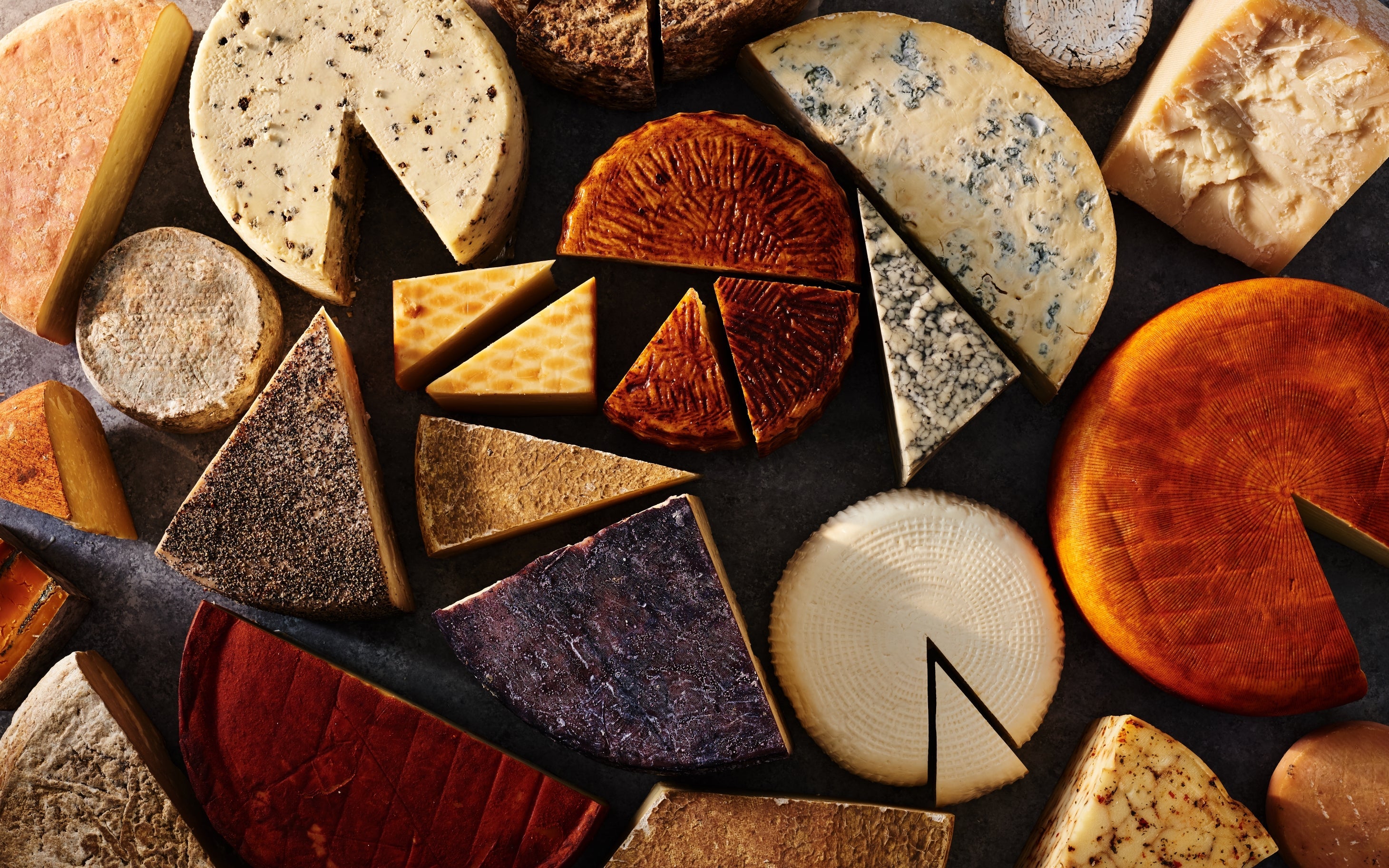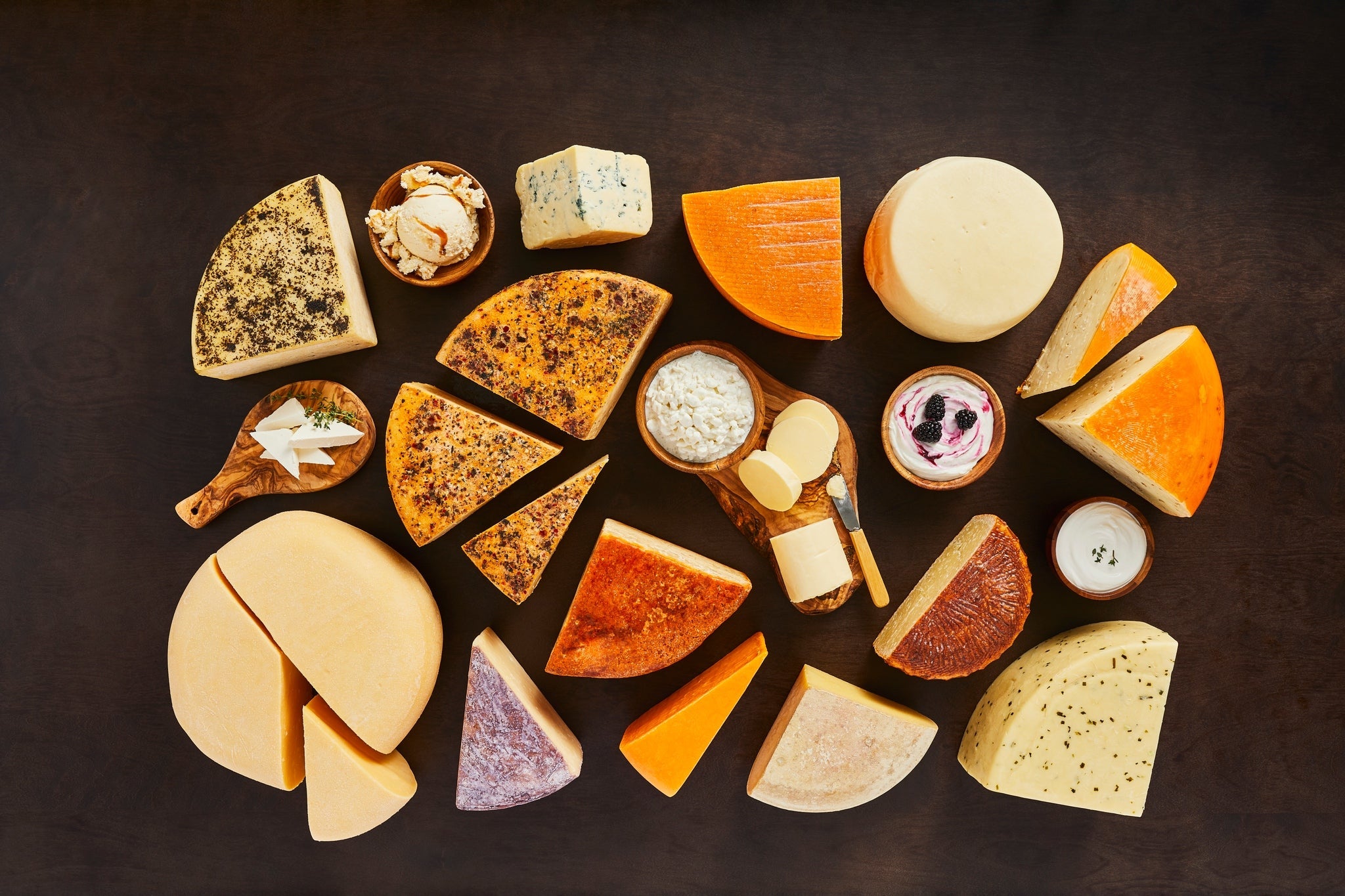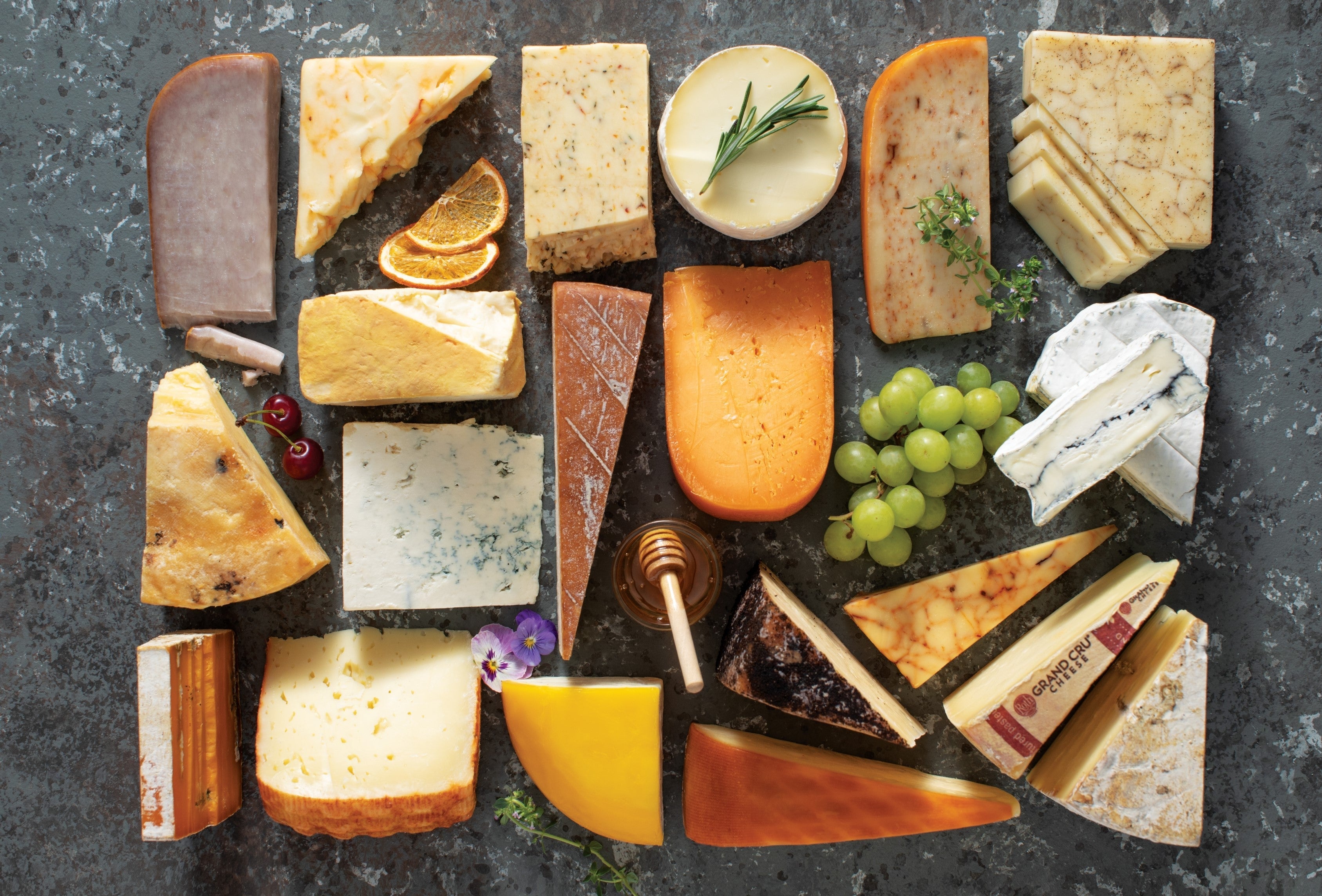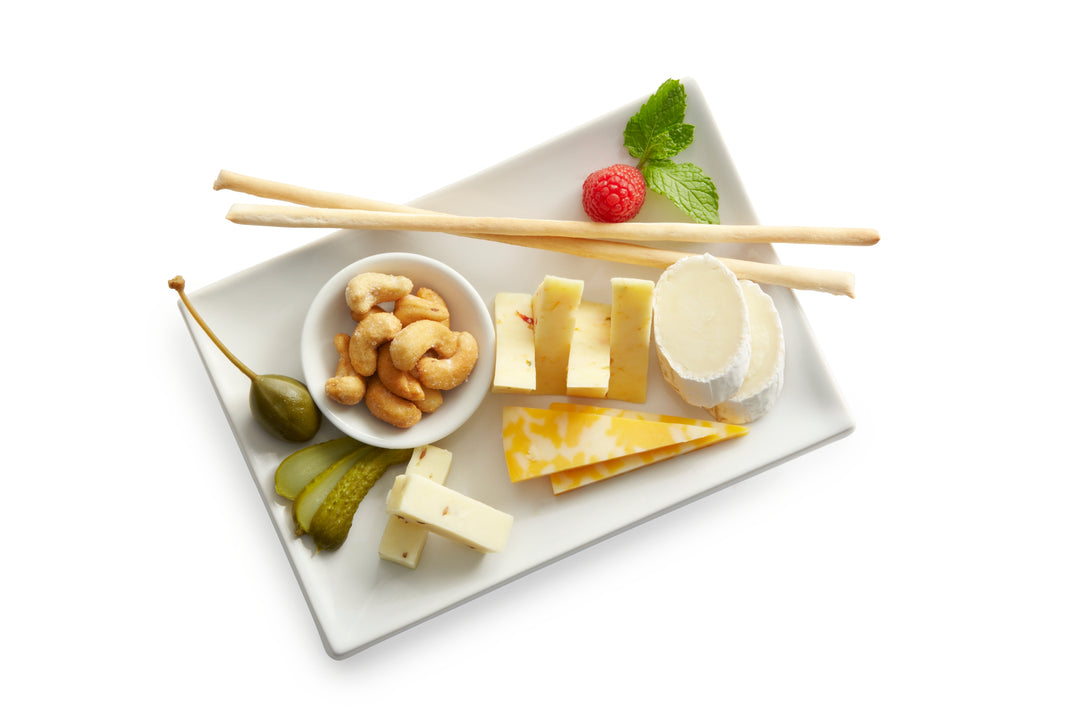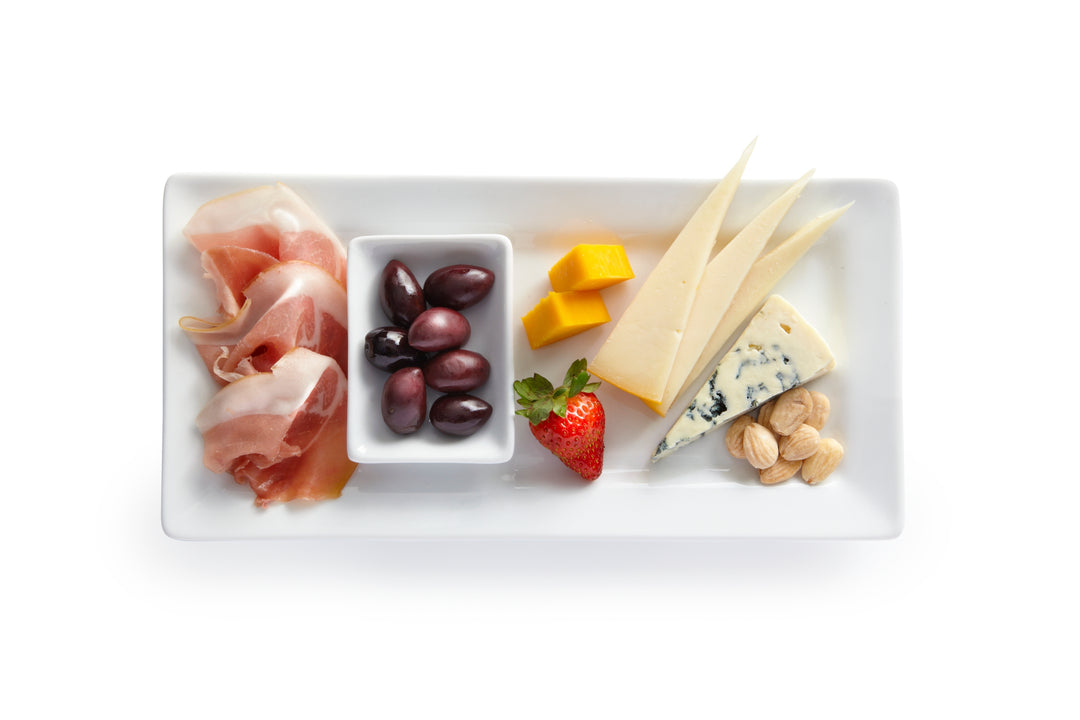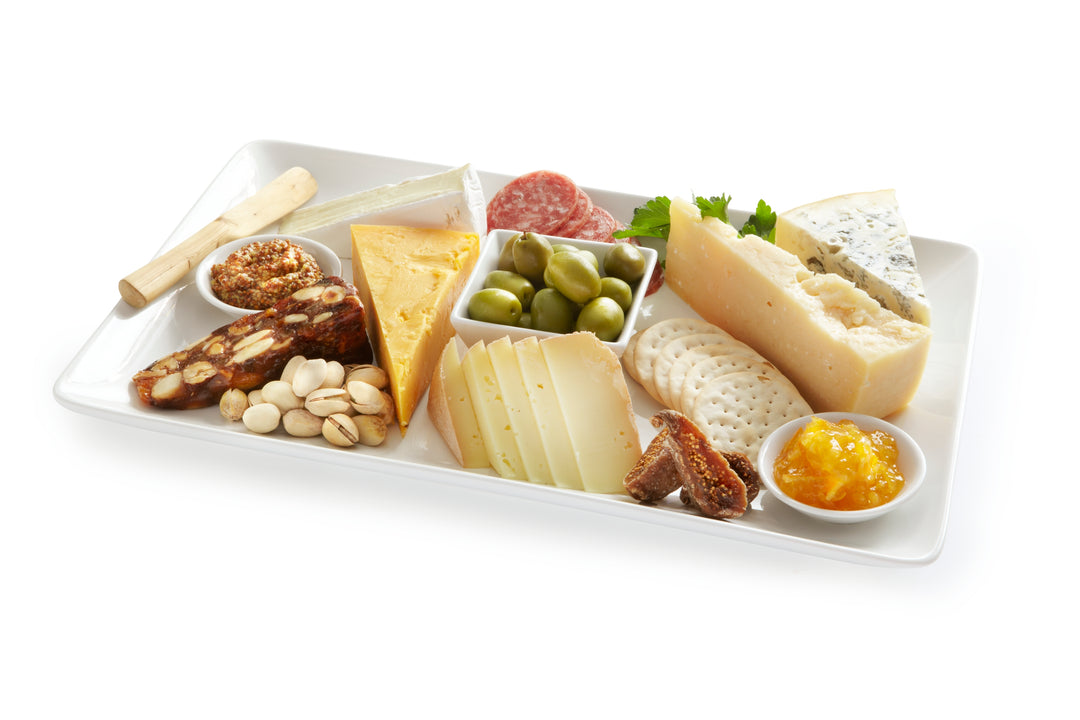General
YES, always! Please visit our 'Donations' page to make a request!
The shelf life on all of our products vary greatly depending on what type of cheeses you have purchased. A good rule of thumb, the younger the cheese, the shorter the self life.
Soft cheeses should be eaten more quickly than aged cheeses - a good general rule of thumb is that soft cheese should be eaten within 2 weeks of receipt. The more the cheese is aged the longer it lasts.
The firmer the cheese is, and the less moisture it has, the longer it will keep. You can keep aged cheeses for a REALLY long time... (6 months or more). They might develop surface mold on the cut surface, but they're still safe to eat - just trim that mold off!
Many cheeses, particularly aged cheeses such as Cheddar and Swiss, contain little or no lactose. For this reason, cheese is an important source of calcium and many other nutrients found in milk for people who have difficulty digesting lactose or milk's sugar. (For more nutritional information visitwww.nationaldairycouncil.org)
Yes, the milk used in Keystone Cheese is rBST free, hormone, antibiotic and gluten free!
Recombinant bovine somatotropin (rBST), also called rBGH, is a growth hormone used to increase milk production in cows. According to a 2002 survey by the Department of Agriculture, it is used in 22 percent of the nation's dairy cows. Use of the hormone, which has been sold in the United States since 1994, is controversial because it can cause health problems in cows. Currently there is no test that can distinguish between milk from rBST treated and untreated cows; however, many health conscious consumers prefer not to consume dairy products from rBST treated cows. Controlling the source of the milk is the key to guaranteeing that dairy products do not have additional growth hormones added.
Consuming cheese immediately after meals or as a between-meal snack helps reduce the risk of tooth decay. In particular - Aged Cheddar, Swiss, Blue, Monterey Jack, Brie, Gouda and processed American Cheese have been shown to help prevent tooth decay. Calcium, phosphorus and other components in cheese may contribute to this beneficial effect. For more nutritional information visitwww.usdairy.com.
This is Calcium Lactate which is often found in aged cheeses. Small crystals of it precipitate out when lactic acid is converted into a less soluble form by the bacteria active during the ripening process.
Hard: Asiago, Bellavitano, Parmesan
Semi-Hard: Baby Swiss, Cheddar, Edam, Gouda, Romano, Swiss, Montamore
Semi-Soft: Brick, Colby, Colby Jack, Monterey Jack, Pepper Jack, Habanero Jack, Farmers, Fontina, Havarti, Limburger, Munster
Soft & Fresh: Feta, Juusto, Goat
Pasta Filata: Mozzarella, Provolone, String
Processes/Cold Packed: Cheese Spreads, Smoked Cheddar Smoke Swiss, Dairy Fudge, Processed Bacon, Processed Salami, Sliced American
Blue: Blue
Shipping
This all depends on the time of year, weather and your location.
STANDARD INSULATION
This is complimentary and will include ice packs. During winter months and shorter transit times, less insulation is needed especially in the north. Our standard insulation includes packaging that stays cool for 24 or 48 hours.
INSULTED COOLER BOX - additional cost
During the summer months and for transit to southern states and the west coast, we require you purchase a insulated cooler. There is an additional cost for the cooler, ice packs are complimentary. These are found at the end of every shopping page. Purchase cooler here
Expedited delivery is also available for an additional charge to cut down transit times.
Please note: This option will help to keep the cheese cool on its journey.
Refrigerate the cheese upon arrival. Although cheese may be warm, it can still be consumed.
A great way to really know if the cheese got too warm is to put the cheese in the refrigerator and wait to see if it puffs up. If the packaging gets puffy, at one point the temperature got too high.
If your items arrived damaged or incorrect, please reach out to us at info@keystonefarmscheese.com or at 484-353-6881.
Returns
100% Satisfaction Guaranteed: We stand by every product we sell and every gift we deliver. If, for any reason, you or your gift recipients are not completely satisfied with a Keystone Cheese item, simply call or email within 48 hours for a replacement, refund or credit - whichever you prefer. We promise to handle your request promptly and courteously.
For more information you can go to our Refund Policy page
We guarantee it.
Cheese Making Questions
It takes about 10 pounds (5 quarts) of milk to make 1 pound of whole milk cheese. For our 75 pound mammoth wheel, it would take 750 pounds, or 87 gallons, and take approximately 15 cows to produce enough milk.
Also called starter cultures, friendly cultures are added to milk at the start of the cheesemaking process. The cultures change the lactose or milk sugar (the only carbohydrate in milk) into lactic acid. This equalizes the pH so the milk protein will form curds when the rennet is added. The cultures used by the cheesemaker are a closely guarded secret as they contribute to the distinct qualitites of each cheese.
Rennet is a coagulating enzyme used to curdle milk. causing clumps (curds) to form and separate from the liquid (whey). Rennet is added after the cultures and is also integral to the final flavor of the cheese. Until recently, rennet was derived from the stomach lining of a calf, goat or lamb. Now, many cheesemakers use vegetable rennet (derived from plants) or microbial rennet. In addition to being less expensive than traditional animal rennet, vegetable and microbial rennet allow cheesemakers to craft cheeses suitable for vegetarians.
Annato is a natural food coloring derived from the ground seed pods of the annato tree, native to Centeral and South America. Cheese is naturally the color of the milk, from which it is made. Some cheeses have a yellow or lightly orange hue use caused by the vitamin A that cows ingest from grazing out in lush pastures. During cold winter months, cows come in from the pastures and are fed silage (forage plants that are stored in a silo) and the cheeses that result from this milk are white. This variation persuades some cheesemakers to color their cheeses so they will look uniformly nutritious. The earliest colorings were carrot juice and marigold petals. Today, as they have for at least and century, cheesemakers add color by adding annatto.
Cheeses sold by Keystone Cheese are made from the milk of Jersey, Guernsey, and Holstein cows.
Gift Shipping
When placing your order, consider whether the recipient will be available receive the package at the shipping destination you provide. If not, you may want to adjust the delivery location so that it will be received in a timely fashion. It is worth noting that we cannot be responsible for packages that spoil due to the recipient being away from the delivery location.
At check out, include your note in the message box.
Prices will not be included on the packing slip or inside of the package. Receipts will be sent to the email you entered during checkout.
We will make sure to place "From: First Name Last Name" on the gift message if you forget to add it during checkout, but we recommend you make your recipient feel extra special by personalizing a short gift message during checkout. Example: "Happy Birthday! From Dad".
We will only send tracking notifications to the email you provide to us during checkout.
We offer complimentary gift messages for every order. This can be added on the shipping page during checkout.
We do not offer the ability to "create your own" gift box on our website at this time.
Group Gifting
Absolutely! Please contact us at orders@keystonefarmscheese.com or 484-353-6881.
Yes! You can add your logo to cards or gift tags. You can also include a greeting with your logo to make the moment extra special.
Gifts that don't require customization have a holiday shipping deadline of December 19th. Gifts that are customized have a shipping deadline of December 6th.
Cheese Care
Visit our 'CHEESE CARE' page here to learn more!
Wholesale
YES! For more information on our wholesale department, visit our 'Wholesale' page.


